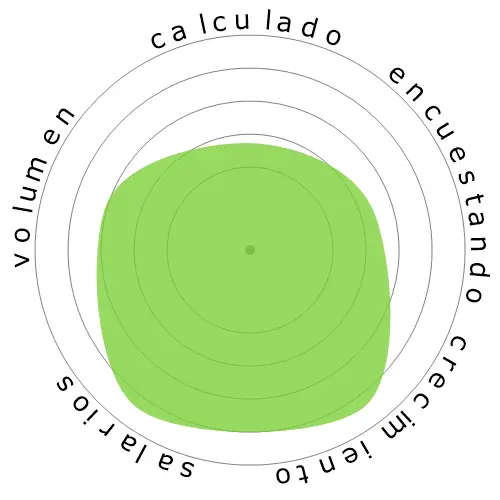Analistas de Seguridad de la Información




Las personas también vieron
Riesgo de automatización calculado
Riesgo Moderado (41-60%): Las ocupaciones con un riesgo moderado de automatización generalmente implican tareas rutinarias pero aún requieren cierto juicio e interacción humanos.
Más información sobre qué es esta puntuación y cómo se calcula está disponible aquí.
Encuesta de usuarios
Nuestros visitantes han votado que no están seguros si esta ocupación será automatizada. Esta evaluación se ve respaldada por el nivel de riesgo de automatización calculado, que estima una posibilidad del 58% de automatización.
¿Cuál crees que es el riesgo de la automatización?
¿Cuál es la probabilidad de que Analistas de Seguridad de la Información sea reemplazado por robots o inteligencia artificial en los próximos 20 años?
Sentimiento
El siguiente gráfico se incluye siempre que haya una cantidad sustancial de votos para generar datos significativos. Estas representaciones visuales muestran los resultados de las encuestas de usuarios a lo largo del tiempo, proporcionando una indicación importante de las tendencias de sentimiento.
Sentimiento a lo largo del tiempo (anualmente)
Crecimiento
Se espera que el número de ofertas de trabajo para 'Information Security Analysts' aumente 32,7% para 2033
Empleo total y estimaciones de vacantes laborales
Las proyecciones actualizadas se deben 09-2025.
Salarios
En 2023, el salario anual mediano para 'Information Security Analysts' fue de 120.360 $, o 57 $ por hora.
'Information Security Analysts' recibieron un salario 150,4% más alto que el salario medio nacional, que se situó en 48.060 $
Salarios a lo largo del tiempo
Volumen
A partir de 2023, había 175.350 personas empleadas como 'Information Security Analysts' dentro de los Estados Unidos.
Esto representa alrededor del 0,12% de la fuerza laboral empleada en todo el país.
Dicho de otra manera, alrededor de 1 de cada 866 personas están empleadas como 'Information Security Analysts'.
Descripción del trabajo
Planifique, implemente, actualice o monitoree medidas de seguridad para la protección de redes informáticas e información. Evalúe las vulnerabilidades del sistema para los riesgos de seguridad y proponga e implemente estrategias de mitigación de riesgos. Puede asegurarse de que los controles de seguridad apropiados estén en su lugar para salvaguardar archivos digitales y la infraestructura electrónica vital. Puede responder a violaciones de seguridad informática y virus.
SOC Code: 15-1212.00


Comentarios
Leave a comment
It'll be a race between red and blue team businesses to implement increasingly better models. Social engineering sure, but meh honestly. Will you be able to find incredibly difficult scraps or oversights the model missed? Will it be worth the risk and investment of the pentester? Overall bleak outlook.
This will increase the ability of automated systems to detect any remaining vulnerabilities, but will not completely remove the need for technicians to maintain, remediate, and upgrade the systems. There will still be a need to touch the hardware. Depending on individual situation, some companies will use more of AI tech than the others. We can already see something similar in the engineering, accounting, and law practice, where paralegals and drafters have not been completely replaced by software. Sole practitioners might use automation more extensively than the large corporations, but there will be a legal requirement for a human audit.
In addition, location-independent digital nomads who train themselves to use the automation tools could do a lot of accurate work in a short amount of time, as independent consultants and freelancers, and do business with multiple clients.
Making the choice to transition from repetitive and tedious manual work to automation, will be akin to transitioning from flintstones to nuclear power. Nuclear power still needs humans, and so will information security solutions.
Deja una respuesta sobre esta ocupación